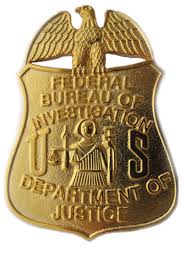 Close Topic Options
Close Topic OptionsPaid FBI Informants
Paid Fbi Informants - Politics, Business, Civil, History - Posted: 5th Dec, 2018 - 4:15am
Paid FBI Informants
Entrapment or Foiling Terror? FBI's Reliance on Paid Informants Raises Questions about Validity of Terrorism Cases
Prosecutors and defense attorneys made their final arguments this week in the trial of the Newburgh Four, a high-profile case that has made national headlines as a potent example of so-called "homegrown terror." The defense has argued that the defendants were entrapped by government agents and not predisposed to commit a terrorist crime. For several months, Democracy Now!'s Anjali Kamat and Jacquie Soohen of Big Noise Films traveled through Muslim communities in New York and New Jersey to track the Newburgh case and two others. In all three, Muslim men were arrested on terrorism charges. In all three, no terrorist crime was actually committed. And all three cases relied heavily on hundreds of hours of surveillance recorded by a paid government informant. Today, a Democracy Now! special investigation. Ref. Source 8

Paid FBI Informants (Hover)
Informants FBI Paid
The FBI gave its informants permission to break the law at least 5,658 times in a single year, according to newly disclosed documents that show just how often the nation's top law enforcement agency enlists criminals to help it battle crime. Ref. USAToday
Paid FBI Informants History & Civil Business Politics
This self-proclaimed FBI informant decided to divulge secrets about an ongoing case. His reason: He hadn't been paid. Being able to keep a secret is a top job requirement for a criminal informant. But a man claiming to be central to a high-profile FBI sting of an alleged bomb-maker broke that protocol in an attempt to force the government to pay him. Months later, the criminal case he described has been unsealed, and prosecutors will have to deal with the mess. Source 8p.
Informants FBI Paid
Significant risk requires significant rewards and if you are not getting why should they keep their end of the bargain? Morality and ethics has no place in the underworld specially where you can die being an informant.
International Level: Specialist / Political Participation: 45 ![]()
![]()
![]() 4.5%
4.5%
 TOPIC: Paid FBI Informants
TOPIC: Paid FBI Informants Are they reliable? Can the FBI allow informants to break the law?
Are they reliable? Can the FBI allow informants to break the law?